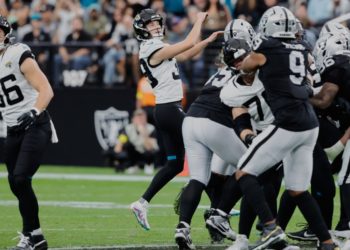There are three broad spirits in which American television portrays the rich: aspiration, judgment and reassurance. The aspirational spirit makes you want to have what they have, the judgmental spirit condemns them for what they’ve done to get what they have, and the reassuring spirit tells you that you don’t want what they have, anyway.
Often these spirits coexist in the same portrayal. Even exercises in what seems like pure aspiration — a reality TV real estate show, say — can feel like a rough draft for an eat-the-rich jeremiad, while even stories that are intent on portraying rich people in a critical light find it hard to escape from some sort of aspirational identification. Imagining oneself hanging out in the resorts on “The White Lotus” is part of the show’s appeal, even when you’re officially glad you aren’t one of the characters. And a show like “Succession,” in which the Murdoch-esque family was not just flawed but also malign and aggressively miserable, still stirred a certain kind of envy in the frictionless way its billionaires moved from yachts to palazzos to alpine and tropical retreats.
So the most interesting thing about “Your Friends & Neighbors,” a new Apple TV show in which Jon Hamm plays a New York City moneyman who starts thieving from his gilded neighbors to keep up appearances after he loses his high-paying job, is that it manages to eliminate almost any sense of aspirational identification from its portrait of leafy Connecticut hyperaffluence.
It isn’t just that its characters, inhabiting a world that resembles the richest parts of Greenwich or New Canaan, are unhappy, flailing, depressed. They are also denied the compensations that are supposed to attach to wealth. For all their millions, they still don’t seem financially or socially secure, and although the show deliberately showcases various luxury goods (high-end watches, Rolls-Royces, fancy Scotch), the overall ambience is extraordinarily bare of style and beauty, offering instead a world of blah décor, undistinguished fashions and cavernous homes that just look like overpriced McMansions.
A couple of years ago I praised the show “Fleishman Is in Trouble” for its effective portrait of a specific kind of almost-upper-class anxiety, the sense instilled in many striving meritocrats that even if they are doing well, they’re still missing out on a security that you simply can’t achieve on a doctor’s or lawyer’s salary: the trust fund, the financial cushion, the assurances of generational wealth.
The characters in “Your Friends & Neighbors” are the people that the striving meritocrats in “Fleishman” might reasonably envy — not the Bezosian billionaire class but the people for whom $15 million homes are normal and watches worth $100,000 can be stolen and not missed. And the new show functions as a very direct and reassuring response to meritocratic status anxiety by portraying its rich world as a place where unhappiness is only magnified and financial security is still an illusion. Generational wealth or no, they are all still stressing about getting their daughters into Princeton, and the pressures of keeping up with the mansion dwellers next door mean that even a top dog like Hamm’s Andrew “Coop” Cooper is just one bad break away from financial calamity.
As part of the target audience for this kind of reassurance, I appreciate the pandering: Watching the first few episodes of the show did, indeed, make me feel better about not being as rich as the onscreen characters.
But is the pandering perspective true? Is this the right way to depict the landscape of the contemporary rich — as a fundamentally dreary place, with all glamour banished? Is “Your Friends & Neighbors” getting at a truth that eludes all the more aspirational portrayals?
I told my editors that I would need six months and a $20 million expense account to really answer that question, but here are a few thoughts while I wait for that request to be approved.
First, you could argue that post-1960s cultural trends have genuinely stripped away certain elements of fun that used to attach to upper-class lifestyles. The dominance of a striving meritocratic spirit has made mere privilege less respectable than in the days when WASP scions coasted into Ivy League schools. Even if you have enough money to set your kids up for life, you still might feel the need to stress about college admissions because that’s what’s expected of you; the Ivy League imprimatur rather than the Social Register is where status really lies.
Likewise, the aesthetic trends of the past 50 years — the turn from ornament in architecture, the collapse of standards of dress and the spread of a casual affect even among billionaires — have stripped away a zone of aesthetic distinction that the superrich used to inhabit and enjoy. To be able to afford certain kinds of beauty, to build Newport palaces or just dress elegantly for dinner was a special grace granted to the old-time upper class, and even though rich people’s homes today are still absurdly expensive, they have lost crucial elements of visual distinction and delight.
Just adding zeros to your bank account doesn’t help with this. The characters on “Your Friends & Neighbors” are probably richer than many of the working admen (and -women) on “Mad Men,” Hamm’s prior portrait of existential issues on the Manhattan-to-Connecticut commute. But the “Mad Men” cast inhabits a far more stylish world, and so even though the personal problems are similar — adultery, divorce, difficult kids, depression — the Eisenhower-era characters seem more enviable because when they suffer, there are compensations in how cool and glamorous they look.
Then finally, perhaps, there was once a way in which rich people — yes, rich men, primarily — were granted a special zone of transgression, a space to commit sins like adultery and get away with it (pending divine displeasure, at least), that made them feel freer than the decent, respectable bourgeoisie. And that distinction largely collapsed with the sexual revolution’s democratization of desire.
Sure, fantasies of wealthy transgression endure — witness the appeal of “Fifty Shades of Grey” — and Elon Musk does have his bizarre postmodern harem. But in most cases, infidelity among the wealthy nowadays seems not all that different from infidelity among the middle class, yielding the same attempts to make the best of unpleasant separations, the same haggles over custody, except with a special pressure connected to the outsize financial stakes. If there’s anything that establishes a permanent mood of misery in “Your Friends & Neighbors,” it’s this sense that money mostly makes divorce more likely without making it that much more endurable.
So should we pity the mansion class? Are they perhaps even worse off, in some way, than the meritocratic strivers one level down the ladder?
I wish I really thought so, but in the end, the bleakness of “Your Friends & Neighbors” feels a little too overdetermined to convince. This is especially true of the various stupidities required to put Hamm’s character in dire enough financial straits to turn to larceny: It’s easy enough, as a nonwealthy viewer, to think: If I were that rich but also overleveraged, I would simply not sleep with a colleague after signing a contract that gave my company complete control of my clients for years after I was fired.
And it’s easy enough, more generally, to watch the show and think: These people are wasting their money and failing to enjoy it, but I would simply not plant myself so deeply in a miserable existence if I were pulling down millions and millions a year.
Of course, there are many rich people who do end up planted in misery. But it would be easier to resist envy if that misery were automatic and universal, if there weren’t plenty of rich people who, despite lacking in certain advantages available to the wealthy in the past, still seem to be making the most out of their lucre, with chastisement perhaps awaiting in the next life but definitely not evident in this one.
“Your Friends & Neighbors” is a worthy exercise in depicting the ways in which that chastisement can arrive early and a useful balm for the resentments of people who assume that they’d definitely be happier with $10 million in the bank. But if you want the full picture of how wealth is experienced in America, I’d still recommend a dose of “Selling Sunset” or “Million Dollar Listing: New York” for every hour you might spend with the miserable rich.
Breviary
Dan Hitchens on the last modern pope.
Jude Russo on the postliterate future.
Anastasia Berg on the left and the birth dearth.
Daniel Socher on U.F.O.s and the unconscious.
Miles Klee on ChatGPT and religious mania.
Sam Kriss on the reactionary avant-garde.
Ross Douthat has been an Opinion columnist for The Times since 2009. He is also the host of the Opinion podcast “Interesting Times with Ross Douthat.” He is the author, most recently, of “The Deep Places: A Memoir of Illness and Discovery.” @DouthatNYT • Facebook
The post Lifestyles of the Rich and Miserable appeared first on New York Times.




